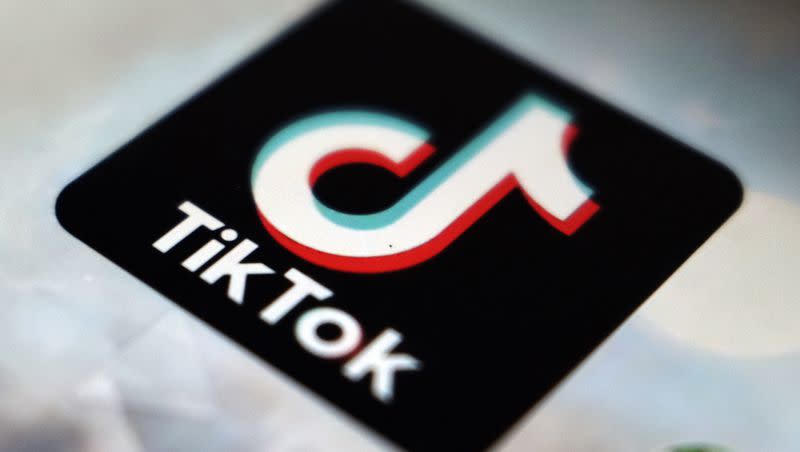Have legal challenges to TikTok bans been successful?

- Oops!Something went wrong.Please try again later.
Over the last couple years, a wave of laws banning TikTok have passed through state legislatures and faced scrutiny in the courts.
The bans have ranged from preventing the app on state-owned devices and networks to statewide prohibitions of the app.
After Texas banned state employees from having TikTok on state-owned devices or networks, a group sued challenging this ban. Earlier this month, U.S. District Judge Robert Pitman rejected the suit and so the ban was upheld, per Reuters.
Related
Other states have also prevented from state employees from having TikTok on state owned devices. In December 2022, Utah Gov. Spencer Cox issued an executive order banning TikTok from all state-owned devices.
Citing cybersecurity risks, Cox said, “As a result, we’ve deleted our TikTok account and ordered the same on all state-owned devices. We must protect Utahns and make sure that the people of Utah can trust the state’s security systems.”
Banning TikTok from government owned devices is one kind of TikTok ban that has occurred in the U.S., but there’s also another kind: banning the app outright.
Montana Gov. Greg Gianforte signed a bill into law in early 2023 that would ban app stores from providing the app to state residents. The law, the first in the country like it, was scheduled to go into effect on Jan. 1, 2024.
TikTok filed a suit arguing that the ban was unconstitutional. “We are challenging Montana’s unconstitutional TikTok ban to protect our business and the hundreds of thousands of TikTok users in Montana. We believe our legal challenge will prevail based on an exceedingly strong set of precedents and facts,” a statement from TikTok said.
Before the ban could go into effect, a judge blocked it, according to Politico.
U.S. District Judge Donald Molloy granted a preliminary injunction on Nov. 30, and a final ruling will be issued later. “Despite the state’s attempt to defend (the law) as a consumer protection bill, the current record leaves little doubt that Montana’s legislature and Attorney General were more interested in targeting China’s ostensible role in TikTok than with protecting Montana consumers,” Molloy wrote, per The Associated Press. “This is especially apparent in that the same legislature enacted an entirely separate law that purports to broadly protect consumers’ digital data and privacy.”
A spokesperson for Montana Attorney General Austin Knudsen issued a statement about the ruling to The Associated Press, “The judge indicated several times that the analysis could change as the case proceeds. We look forward to presenting the complete legal argument to defend the law that protects Montanans from the Chinese Communist Party obtaining and using their data.”
In addition to TikTok bans, Utah, Indiana and Arkansas have brought different lawsuits against TikTok.
Related
Cox and Utah Attorney General Sean Reyes announced the consumer protection suit against TikTok in October.
“Make no mistake that Utah will continue to lead out to protect children from the harms of social media, and this is not a partisan issue,” Cox said. “We will not stand by while these companies fail to take adequate meaningful action to protect our children. We will prevail in holding social media companies accountable by any means necessary.”
The Utah Attorney General’s office published a press release that mentioned the suit Reyes filed on behalf of the Division of Consumer Protection in October. “Investigations into other potentially problematic practices remains ongoing,” the statement said.
Arkansas brought two suits against TikTok and its parent company ByteDance.
“The first lawsuit targets TikTok and ByteDance for misleading the public about the availability of adult content to teenage users,” Arkansas Attorney General Tim Griffin said in a press release. The second suit claimed that “the highly sensitive data that TikTok collects from Arkansas consumers is accessible by individuals and entities subject to Chinese law.”
TikTok previously told Forbes that it would not comment on an active lawsuit. Previously, TikTok’s chief executive Shou Chew testified before Congress saying he had “seen no evidence that the Chinese government has access to that (U.S. user) data; they have never asked us, we have not provided it,” per CNN.
Indiana Attorney General Todd Rokita filed two suits against TikTok in December 2022 related to concerns about personal data and alleged false claims. “With this pair of lawsuits, we hope to force TikTok to stop its false, deceptive and misleading practices, which violate Indiana law,” Rokita said in a press release.
At the time, Brooke Oberwetter, spokesperson for TikTok, declined to comment on the ongoing litigation. She said in a statement to The New York Times, “We build youth well-being into our policies, limit features by age, empower parents with tools and resources, and continue to invest in new ways to enjoy content based on age-appropriateness or family comfort.”
Related
The two suits were later combined into one suit, which was dismissed by Judge Jennifer DeGroote of Allen County Superior Court in November. The Indiana Attorney General’s office said to CNN in a statement that the state respects the ruling and “we also disagree with it on various points and are considering appellate options at this time.”
“We were the first state to file suit against TikTok, but not the last, and it’s reassuring to see others take up this ongoing fight against a foreign Big Tech threat, in any jurisdiction,” the statement to CNN from the Indiana Attorney General’s office continued.
In the midst of state-level legislation and litigation in relation to TikTok, some Republican presidential candidates have floated a U.S. ban on the app.
Survey data may indicate a shift in public attitudes toward such a policy. In March, 50% of respondents said they would support a countrywide ban on TikTok, per Pew Research polling data. Now that number is at 38%. Republican support dropped from 60% to 50% and Democratic support decreased from 43% to 29%.

